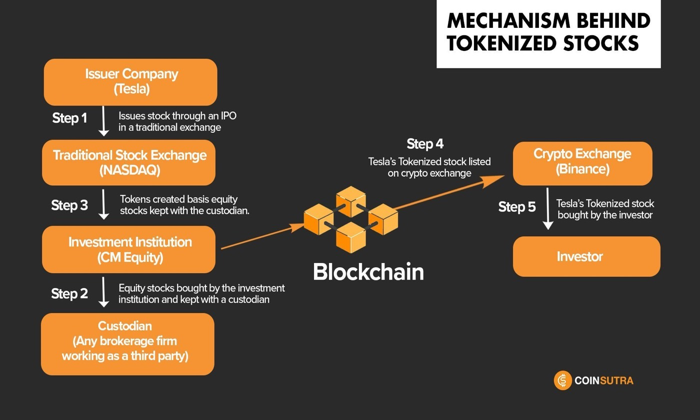Meta AI training has gained significant traction following the approval from the European Union’s data regulator to tap into publicly shared content on its platforms. This milestone marks a crucial step for Meta as it seeks to enhance its artificial intelligence capabilities, utilizing data from popular services like Facebook, Instagram, and WhatsApp. The initiative aims to create more sophisticated AI models that understand the diverse nuances of European communities while strictly adhering to data privacy in AI requirements. Notably, private messages and details from users under 18 are safeguarded, ensuring compliance with European Union AI regulations. As Meta moves forward with this training approach, it aims to align its practices with industry standards set by giants such as Google and OpenAI, contributing positively to the evolving landscape of AI technology.
The recent advancements in Meta’s artificial intelligence training have sparked interest across various sectors, particularly in light of European regulatory frameworks. By leveraging social media data, this initiative is paving the way for innovative AI model training strategies that prioritize user privacy and data integrity. Meta’s commitment reflects a broader trend in the tech industry, where compliance with data protection laws is not just a necessity but a driving force for development. As the European Union continues to refine its AI regulations, the emphasis on data quality and security will guide companies like Meta in shaping responsible AI applications. This evolving scenario presents notable implications for how organizations can ethically utilize data while enhancing AI capabilities.
Meta AI Training and European Union Approval
Meta’s recent approval from the European Union’s data regulator marks a significant step for the company in leveraging publicly shared content to enhance its artificial intelligence capabilities. By utilizing data from its extensive social media platforms, including Facebook, Instagram, WhatsApp, and Messenger, Meta aims to build a robust AI that reflects the diverse landscapes of European communities. This crucial decision underscores the importance of training AI with a wide array of data, allowing for a nuanced understanding of user interactions and cultural differences across Europe.
Moreover, the approval demonstrates Meta’s commitment to comply with the evolving regulatory framework surrounding AI. By ensuring that private messages and data from individuals under 18 are excluded from training datasets, Meta prioritizes user privacy and data protection. This move is especially significant amid rising concerns regarding data privacy in AI, as the company strives to align its practices with ethical standards and regulatory requirements. In the context of the impending EU AI Act, which focuses on ensuring data quality and security, Meta’s compliance strategies will likely serve as a blueprint for other tech giants.
The Importance of Data Privacy in AI Training
Data privacy in AI has emerged as a critical concern as companies like Meta seek to utilize vast amounts of information to train their models. The inclusion of publicly shared content is an acceptable strategy as long as it adheres to compliance standards set forth by European Union regulations. The transparency provided by Meta’s opt-out option for users enhances consumer trust, allowing individuals to exercise control over how their data is used in AI training processes. By prioritizing privacy, Meta not only mitigates risks associated with data breaches but also aligns itself with broader societal values regarding consent and data ownership.
The balance between innovation in artificial intelligence and the need for robust data privacy frameworks is increasingly vital. As regulations around AI become more pronounced, organizations must navigate this terrain carefully to ensure they remain compliant. Meta’s experienced approach could serve as a model for other players in the AI space, illustrating the importance of integrating ethical considerations into the technical development of AI models. By fostering a culture of respect for user data, Meta has the potential to lead the industry towards a more responsible and secure AI future.
Implications of EU AI Regulations on Tech Giants
The European Union’s proactive stance on AI regulations, particularly with the anticipated AI Act, has significant implications for companies specializing in artificial intelligence. For tech giants like Meta, embracing these regulations is crucial not just for compliance, but also for building a sustainable business model that respects user rights. By aligning their data usage practices with such regulations, these companies can maintain consumer confidence and avoid potential legal pitfalls that could arise from non-compliance.
Furthermore, the evolving landscape of AI regulations encourages transparency and accountability in AI model training. Firms are expected to adopt standardized practices, focusing not only on the effectiveness of AI but also on how it affects society at large. As we move closer to the implementation of the AI Act in August 2024, a clear understanding of these frameworks will enable companies to refine their AI strategies and foster positive engagement with regulators and the public alike.
Meta’s Strategy to Incorporate User Interaction Data
Meta’s approach to enhancing its AI through the inclusion of publicly shared content represents a strategic pivot towards more community-focused AI model training. By sourcing data from user interactions across its platforms, Meta is not only enriching its AI capabilities but also ensuring that these models reflect the realities of its diverse user base. Such a strategy highlights the role of social media data in AI training processes, showcasing how companies can harness real-time user-generated content to develop smarter, more responsive systems.
However, this strategy comes with its own set of challenges and responsibilities. It necessitates a careful curation of data to exclude sensitive information and maintain compliance with data privacy regulations. The implementation of an opt-out mechanism gives users control over their data, thereby enhancing the ethical landscape of AI model training. As Meta navigates this complexity, it positions itself as a pioneer in responsible AI development that respects user privacy while driving technological advancement.
The Role of Publicly Shared Content in AI Development
Publicly shared content from platforms like Facebook and Instagram serves as a rich resource for AI development. This type of data encapsulates diverse perspectives and cultural nuances, allowing AI models to better understand interactions within European communities. Meta’s decision to utilize this data streamlines the AI training process while adhering to necessary data privacy restrictions, ensuring that sensitive information remains protected. Such practices illustrate the importance of balanced data usage, where transparency governs the relationship between AI advancements and user consent.
The incorporation of social media data into AI model training also brings to light the evolving relationship between technology and its social implications. As AI becomes intertwined with everyday life, the ability to analyze and learn from user interactions can provide substantial benefits in terms of user experience and engagement. However, tech companies must remain vigilant and responsible, ensuring that the pursuit of innovation does not compromise user trust or violate ethical standards.
Navigating the Challenges of AI Training in Compliance with Regulations
As Meta implements its AI training strategy, navigating the intricacies of compliance with the European Union’s regulations poses a significant challenge. The recent history of scrutiny and the pause in AI training underscore the need for companies to remain agile and responsive to regulatory changes. By actively engaging with data protection authorities and adhering to their guidelines, Meta can not only enhance its AI models but also prevent potential conflicts that could arise from privacy concerns.
The ongoing dialogue with regulatory bodies highlights the importance of transparency in AI development and sets a precedent for other organizations in the tech industry. By demonstrating a proactive stance in addressing privacy issues and leveraging publicly shared content responsibly, companies like Meta can illustrate their commitment to ethical AI practices. Furthermore, these efforts could pave the way for more collaborative approaches between tech companies and regulators, fostering a more secure and trustworthy AI environment.
Understanding the Complexity of AI Model Training
Training artificial intelligence models is a multifaceted endeavor that requires careful consideration of various elements, including data sources, privacy regulations, and community values. For Meta, this complexity is amplified by the diverse cultural fabric within Europe, which necessitates a tailored approach to data collection and analysis. The use of social media data, enriched with public interactions, can provide valuable insights, but it must be handled with precision to mitigate the risks associated with data privacy.
Moreover, the evolving regulatory landscape around AI emphasizes the necessity for companies to adapt their strategies continuously. The inclusion of regulatory compliance as a central component of AI model training not only fosters ethical practices but also enhances the overall effectiveness of AI systems. As Meta advances its AI initiatives, a meticulous balance between innovation and adherence to data privacy regulations will be essential in developing responsible artificial intelligence frameworks.
Meta’s Commitment to Ethical AI Practices
Meta has positioned itself as an advocate for ethical AI practices amidst the complexities of data utilization and privacy regulations. With its commitment to excluding sensitive user data from AI training, the company is setting a benchmark for how technology can evolve while respecting individual rights. This paradigm shift not only reflects a change in Meta’s approach but also highlights a broader movement within the tech industry towards transparency and accountability in AI development.
By fostering an environment where data is used responsibly, Meta can enhance user trust and loyalty, crucial for long-term success in the ever-competitive realm of technology. As more companies look to integrate AI into their operations, Meta’s model showcases the importance of intertwining ethical considerations with technological advancements. This commitment lays the groundwork for a future where AI serves society positively while maintaining the security and privacy of its users.
Looking Ahead: The Future of AI and Data Regulations
The future of artificial intelligence in Europe is intricately tied to the development and implementation of data regulations, particularly the anticipated AI Act. As we approach its implementation date in August 2024, companies like Meta must prepare to adapt their AI training practices to meet new regulatory guidelines. This proactive approach will not only help mitigate risks but also instill greater confidence among users about how their data is used in AI processes.
Furthermore, the collaborative approach between regulatory bodies and tech companies established during this transition will be vital. As Meta refines its AI strategy, the expectation is that ethical AI practices will thrive in tandem with innovative technology. By embracing these evolving regulations, Meta and similar organizations can navigate the complexities of AI development, ensuring that they harness the power of artificial intelligence while respecting and protecting the fundamental rights of users.
Frequently Asked Questions
How does Meta AI training comply with European Union AI regulations?
Meta AI training has recently gained approval from the European Union’s data regulator, ensuring compliance with EU AI regulations. This allows Meta to utilize publicly shared content from its social media platforms for AI model training while maintaining adherence to data privacy laws. The company emphasizes using diverse data to understand European communities while protecting private user information.
What types of data does Meta use for AI model training?
Meta utilizes publicly shared content such as posts, comments, and queries from adult users on platforms like Facebook, Instagram, WhatsApp, and Messenger for its AI model training. This approach is designed to enhance the quality and effectiveness of its artificial intelligence models while aligning with European data privacy standards.
What measures does Meta have in place for data privacy in AI training?
In its AI training practices, Meta ensures data privacy by excluding private messages and information from users under 18, as mandated by regulatory standards. Furthermore, users will have the option to opt-out of their data being used for AI training through an upcoming in-app form, reinforcing Meta’s commitment to data protection.
How does the EU AI Act impact Meta artificial intelligence development?
The EU AI Act, set to be implemented in August 2024, impacts Meta’s artificial intelligence development by establishing a regulatory framework focused on data quality, security, and privacy. As Meta advances its AI training strategies, it must align with these regulations to ensure ethical and lawful use of data, reflecting practices already seen in other tech companies.
What challenges did Meta face in AI model training prior to EU approval?
Before receiving EU approval, Meta faced significant challenges in its AI model training efforts, including a pause prompted by privacy advocacy complaints across 11 European nations. The Irish Data Protection Commission raised concerns regarding Meta’s privacy practices, which highlighted the need for stricter compliance with data privacy regulations in AI training.
How will users be informed about Meta AI training’s impact on their data?
Meta plans to inform users about the impact of AI training on their data through an upcoming in-app form that will provide options for users to opt-out. This initiative is part of Meta’s commitment to transparency and user control over their personal information amidst the ongoing evolution of AI technologies.
| Key Point | Details |
|---|---|
| Approval from EU Data Regulator | Meta can use publicly shared content from social media for AI model training. |
| Data Sources | Training will include posts, comments, and queries from adult users on Facebook, Instagram, WhatsApp, and Messenger. |
| Data Usage Restrictions | Private messages and data from users under 18 are prohibited from being used for AI training. |
| Opt-Out Option | Users can opt-out of data usage through an upcoming in-app form. |
| Previous Concerns | Last July, Meta paused AI training due to privacy complaints from advocacy group None of Your Business. |
| Legal Compliance | Meta asserts that its AI strategy now complies with legal standards and mirrors practices of companies like Google and OpenAI. |
| EU AI Act Progress | The EU is developing an AI Act, set for August 2024, that focuses on data quality, security, and privacy. |
Summary
Meta AI training has received a significant boost with the European Union’s approval to use publicly shared content for enhancing its artificial intelligence models. With strict adherence to data privacy norms, Meta aims to leverage diverse data while ensuring the protection of user privacy—specifically safeguarding private communications and minors’ data. As the EU continues to shape its regulatory landscape with the upcoming AI Act, Meta’s compliance reflects the growing intersection of innovation and responsible data use in the AI sector.
Meta AI training is at the forefront of technological advancement, as the company has secured approval from the European Union’s data regulator to utilize content from its social media platforms for enhancing its artificial intelligence models. By leveraging publicly shared posts, comments, and queries from adults on platforms like Facebook, Instagram, and WhatsApp, Meta aims to build a more sophisticated understanding of the diverse European communities. This effort comes with a commitment to maintaining data privacy in AI, explicitly excluding private messages and data from users under 18 from the training process. With users being given the option to opt-out through a forthcoming in-app form, Meta is prioritizing user control over data. Amidst evolving European Union AI regulations, this initiative places Meta in line with established practices in the AI industry, similar to those of major players like Google and OpenAI.
The training of artificial intelligence models by Meta, often referred to as AI development, has gained significant traction especially after receiving green light from European authorities. In light of the forthcoming EU AI Act and its stringent requirements, this endeavor not only showcases Meta’s commitment to innovation but also underscores its adherence to data protection norms inspired by the growing awareness surrounding data privacy in AI systems. The initiative utilizes user-generated content, ensuring a rich and diversified dataset that reflects the nuances of its user base while steering clear of sensitive personal information. Furthermore, as Meta harnesses the potential of social media data to enrich its AI capabilities, it emphasizes the importance of compliance with evolving privacy standards and legislative frameworks. Overall, the journey of Meta’s AI evolution is carefully navigating the intersection of technological progress and user rights.















